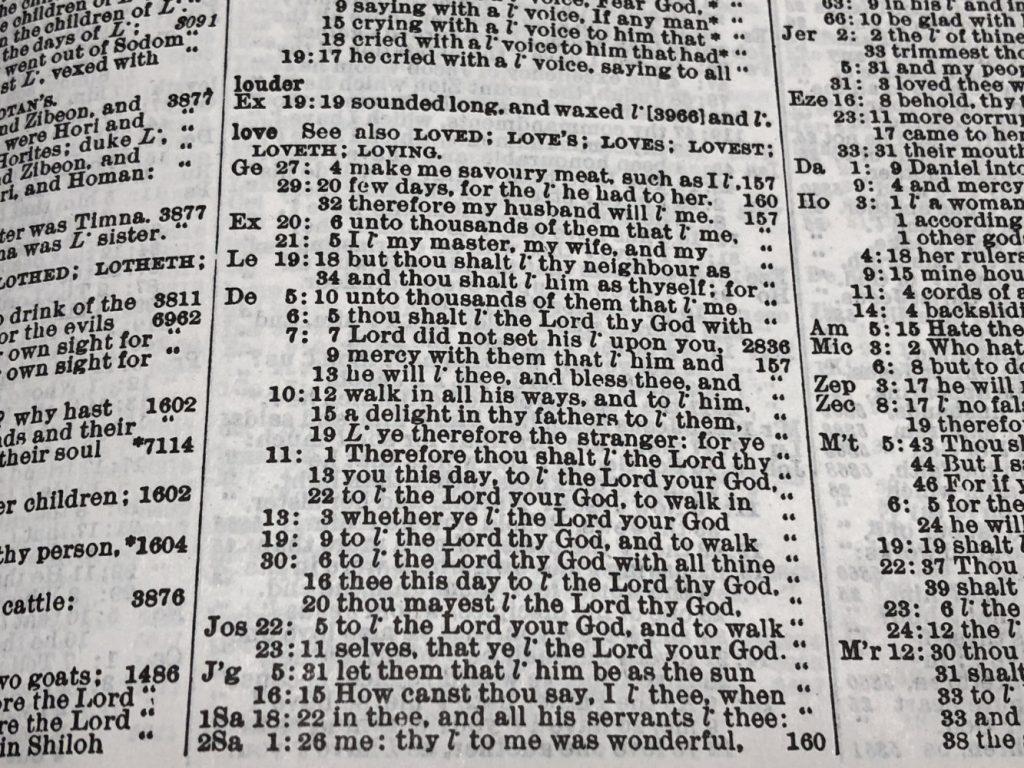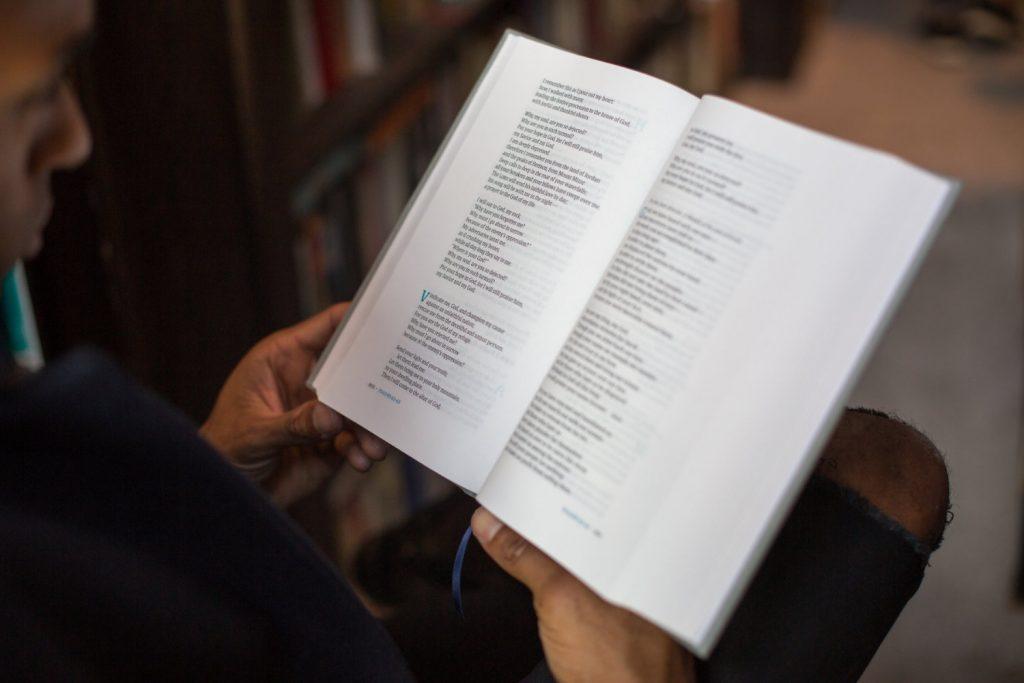Some days I hate living in a fast paced world. Information comes across our eyes a million miles a minute. Facebook notifications come in left and right. Twitter feeds are constantly updating with the latest links and micro thoughts. Images are scrolling by on Instagram. Even the news has additional news items scrolling at the bottom as you listen to the anchor talk about another story. Oh, and don’t forget the text that just came in! The information keeps coming and we never slow down! Even if it does slow down, we keep refreshing for fear of missing out.
Unfortunately, we bring this fast paced world into our time with God. We want our devotions to only take a minute or two to read. We want a verse image to share online to prove we read our Bible. Even when we do actual Bible study, we want to be in & out as fast as possible.
Something that should be sacred has become nothing more than a box to check off on our endless to do lists.
This week I want to help you slow down and reclaim your time with the Lord. While the world is whizzing by, we need to approach our Bible study with a different mindset. We’ll further discuss the problem and then offer some solutions that will help you both slow down and get more out of your time in the Word. So, let’s dive in.
The Problem of Living in a Fast Paced World
For better or worse, the information age has changed us. We have gone from previous generations who used to be able to memorize lots of information without much effort, to an age where we don’t even know our best friend’s phone number. We rely so much on technology that our brains are underutilized in a multitude of ways.
Multitasking is a Distraction
Cal Newport wrote about this and similar ideas in his book Deep Work. We like to believe we live in a world where we can multitask and do a handful of things at once. In reality, we only ever work on one thing at a time. Our mind jumps back and forth between the multiple tasks, no matter how short the interval of time might be. We can only process one thing at a time. In essence, we’ve trained ourselves to be constantly distracted. And our phones and social media add to our heightened distraction.
Bible study is something that should be sacred, but has become nothing more than a box to check off on our endless to do lists. Share on XDue to this increased distraction, we are not as effective as we can be when it comes time to do something like Bible study that requires focus. We cannot do the deep work of Bible study because our brains have residual thoughts from previous tasks. Instead of focusing on the task at hand, our brains are processing the prior tasks that we cannot rid ourselves of. As a result, we stick with the status quo and look for shortcuts in our Bible study instead of working past the distractions.
Distraction Leads to Bible Study Shortcuts
Shortcuts in Bible study are never a good idea. And, it doesn’t help that every Bible software company talks about studying faster and doing more in less time as part of their product marketing. Granted, there are legitimate advantages to Bible software, such as the sheer speed at which it can perform searches and return information. I appreciate that I don’t need shelves upon shelves of books that need to be flipped through manually. That is good time saved, as opposed to time wasted. But, when those same companies promote getting in and out of your Bible study in less time, that seems problematic. Do we really need to get through our devotional time faster? Must we rush through our study and Bible reading?
The problem is, everywhere we turn, we are faced with the pressure to do more in less time, including our Bible study. When we succumb to such pressures, we do ourselves a disservice. Sure, we may walk away having done more, but actually learning and retaining less.
As Christians, we must remember that we cannot microwave our sanctification or Bible knowledge. Rushing through Bible study will not help us become better Christians faster. Instead, it has the opposite effect; it stunts our growth. Spiritual growth takes time and patience. So, let’s look at some ways we can cultivate a habit of slowing down in our studies.
How to Slow Down in Your Bible Study
Even though we live in an age of constant distraction, there are ways you can force yourself to slow down so you can get more out of your time in God’s Word. Here are just a few.
Set Aside a Time and Keep It
One of the most important things you can do to slow down your Bible study is by putting it on the calendar and scheduling that time. The simple fact that it is on the calendar will let you know that it is an allotment of time you are committed to. So, once you’ve scheduled that time, stick to it and use every minute. Even if you happen to finish your study a few minutes early, use the remaining time to linger and meditate on the passage. This will help you not rush through the process.
It doesn’t matter if you spend only 10 or 15 minutes studying or an entire hour. Blocking out the time will create triggers that will help you dive into a mode of deeper work than if you only fit in Bible study wherever you can. The more intentional you are about your time, the more productive it will be. Make Bible study a priority and put it on the calendar.
Don’t Rush Your Study
In that same line of thought, don’t feel as if you need to complete an entire study in a single session. Sometimes you need to spend as long as it takes to get the most out of your study, even if that means completing it over multiple sessions.
I was talking with a co-worker about this the other day. He told me about his time studying Mark, as he’s working to become more proficient in Greek. He lamented his frustration in only reading and studying 4 or 5 verses a day. It felt like it was taking him forever to read Mark’s gospel. Yet, he also exclaimed about how even with such a small group of verses he always walked away with so much from his studies. Why? Because he took his time and didn’t feel the need to rush through it. As a result, each word became more important than it would have been had he read entire chapters at a time. Even though he feels like he’s moving slowly, his slower pace is allowing him to learn far more than he otherwise would.
Unless there are reasons you need to, don’t set time restraints on your studies. Take your time and let the Lord set the pace. Like my co-worker, you’ll be surprised at what you can walk away with when you take your time.
Let the Lord set the pace in your Bible study. He's in charge, not us. Share on XUtilize Bible Journaling
Journaling is another way you can slow down in your studies. The act of journaling forces your brain to slow down on many facets, and is a boon to Bible study.
First, journaling forces you to think about what you’ve read so you can distill it into your own words. This is not a process you can rush; it requires thoughtfulness. Second, writing slows down your brain and forces you to process information differently. In many ways, writing reinforces the information and helps you retain it better. Not to mention, writing takes time. Even if you’re scribbling notes quickly, it still takes more time than if you didn’t, and that time spent writing is valuable for slowing down.
Journaling is also helpful if you are working on your study over multiple sessions. Your journal gives you a record to refer to, so you can quickly get back in the flow, instead of wasting time trying to remember what you did in prior sessions.
Memorize Scripture
Scripture memory is another method you can implement to slow yourself down in your Bible study. Unless you have a photographic memory, memorization takes time, discipline, and repetition. In other words, it’s not a fast process. Whether you’re using index cards, writing the verses in a notebook, or using an app, the process is the same. Read. Recite. Repeat.
Not only does this help you spend more time in God’s Word, but it programs your brain to look at Scripture different than the rest of the information that comes across your eyes throughout the day. In time, your brain learns that this is information worth remembering, versus the plethora of information that is forgotten just as fast as it’s consumed.
Meditate on Scripture
Along with Scripture memory, biblical meditation is another method that trains your brain to look at the Bible and time with God differently. Both deliberate and occasional meditation are vital exercises in the Christian life for spiritual growth. Deliberate meditation is your typical time of Bible study, which has been discussed above.
Occasional meditation throughout the day is just as important. It is during these times that we force ourselves to step away from the madness of the world. We slow down to intentionally focus on God’s Word and how it relates to our lives and the world around us. Not only does it halt the influx of information for a period, it reiterates the importance of God’s Word in our lives.
Moments of occasional meditation throughout the day are great ways to slow down and disconnect from everything the world is feeding us.
Moments of occasional meditation throughout the day are great ways to slow down and disconnect from everything the world is feeding us. Share on XGo Analog
This last method might seem a bit extreme, but it can also prove helpful. Ditch the Bible app and Bible software, at least for your Bible reading.
When you read the text of God’s Word use a physical Bible. With so much of the information we receive throughout the day coming from a glowing screen, the fact that a physical Bible is not glowing at us forces our brains to react differently. Plus, there are no notifications going off or different apps to distract you while studying. A physical Bible is (mostly) distraction free and slows you down to appreciate God’s Word.
Now, if you’re deep in a study, don’t neglect using your Bible software and other tools. Use them as needed, but let them be secondary to your physical Bible.
Will You Exit the Bible Study Rat Race?
If you’re going to get the most out of your Bible study, you must be intentional. You can slow yourself down, but it takes work and deliberate action. So, will you exit the Bible study rat race & slow down your time in God’s Word?
Remember, you have an entire life to learn God’s Word. You don’t need to rush it.
Weekly Study Prompts
This week, meditate and journal on the following passages:
- Monday – Acts 20-21
- Tuesday – Acts 22-23
- Wednesday – Acts 24-25
- Thursday – Acts 26-27
- Friday – Acts 28
- Memory Verses: Acts 20:24; 2 Corinthians 4:7-10
Free Bible Study eBook
Click the button below to get a free copy of our "Bible Study Blitz" ebook that will give you 5 tips to enhance your Bible study.





